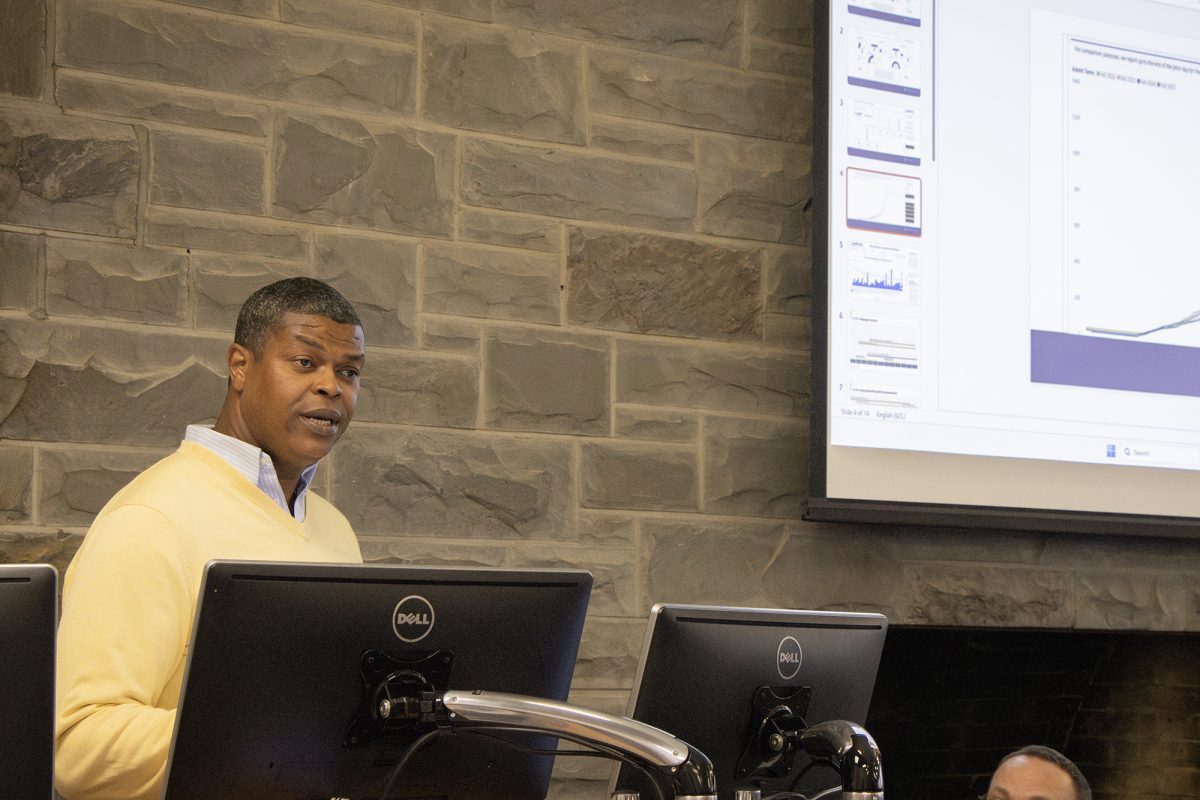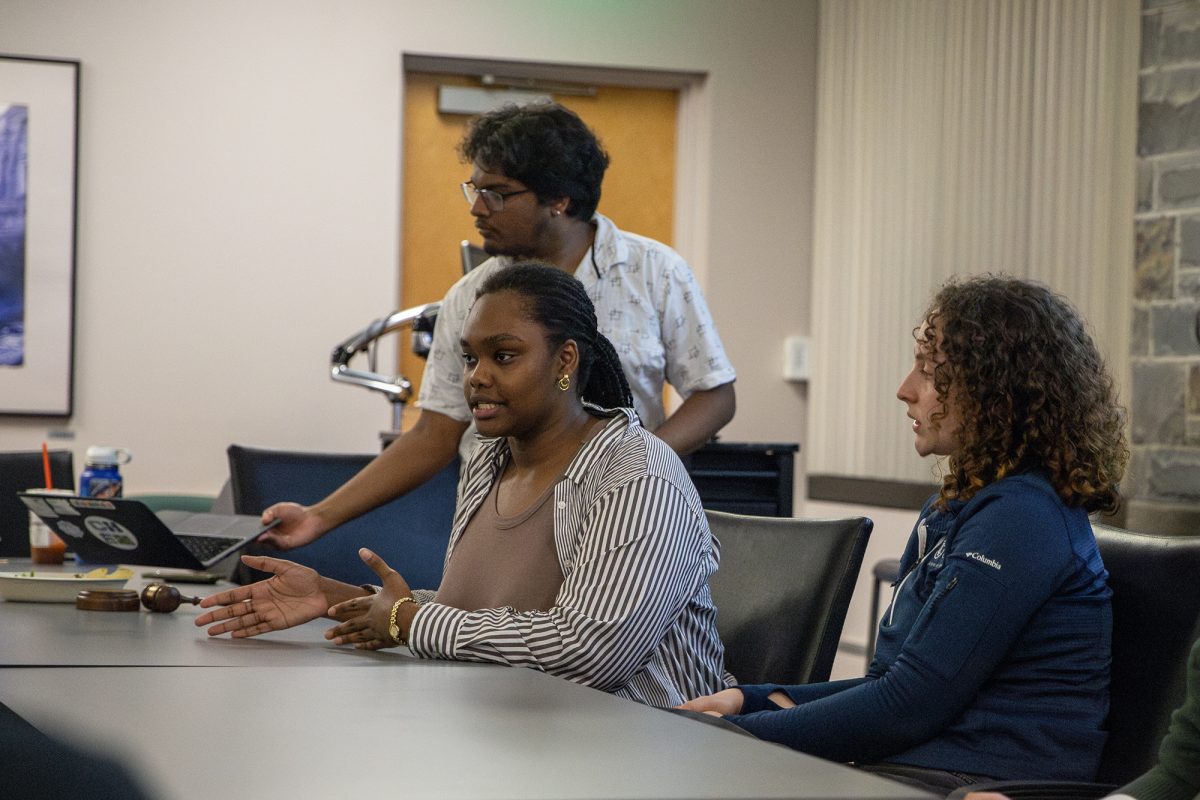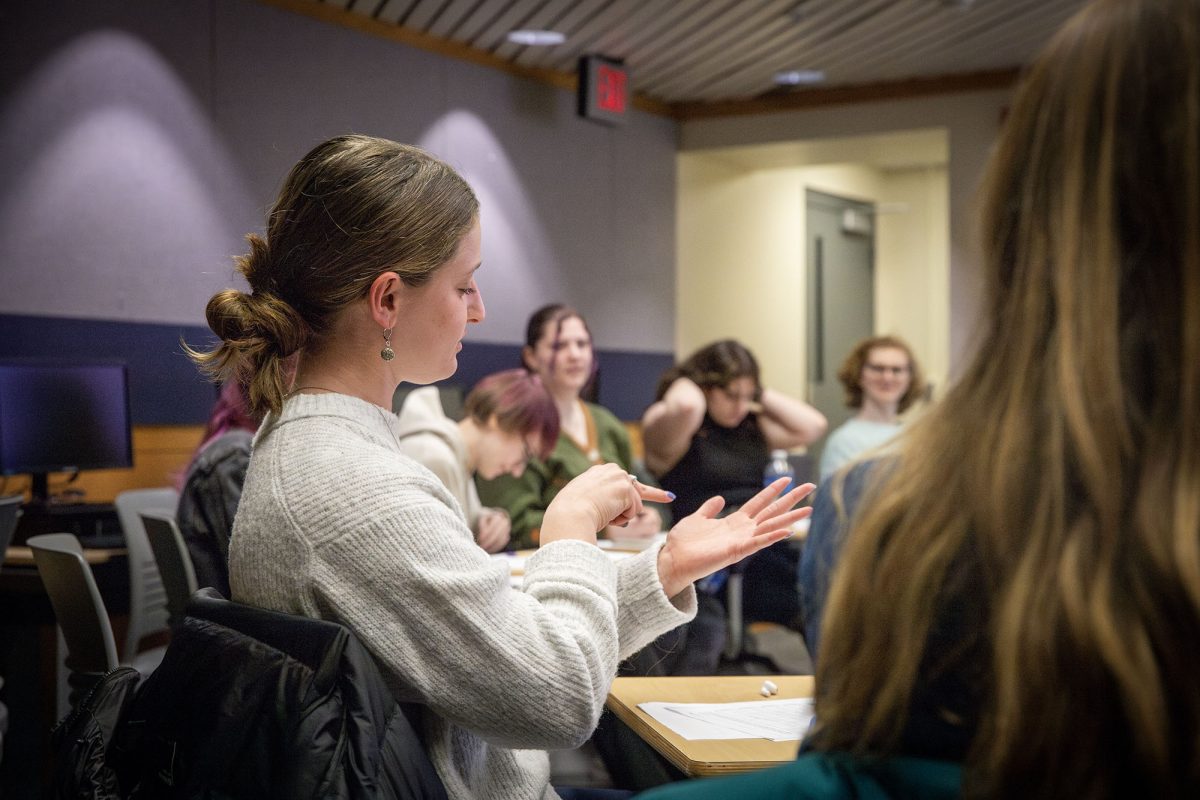On April 22, Earth Day, students and Ithaca locals gathered on The Commons to declare a climate emergency on “Reclaim Earth Day.” Local groups — like Cornell on Fire and Extinction Rebellion Ithaca — alongside Cornell University, Tompkins Cortland Community College and some Ithaca College students marched to The Commons to participate.
Fourth Ward Alderperson Jorge DeFendini moderated the lineup of 10 speakers, followed by performances by local bands like Good Head. More than 100 people attended and some engaged with speakers and local politicians that were present.
In its May 1 meeting, the Common Council will be voting on the Justice50 proposal that aims to tackle issues about climate justice equity. Inspired by the federal Justice40 Initiative, Justice50 is a part of the Ithaca Green New Deal and proposes minimizing the harmful impact of climate change on historically underrepresented and marginalized communities.
Michael Charles, assistant professor of biological and environmental engineering at Cornell, started by giving a land acknowledgment. Charles said he was a Diné citizen of the Navajo Nation and spoke about how climate change disproportionately impacts Indigenous communities.
“With the rapid climate changes that we are currently experiencing, Indigenous peoples are already needing to adapt their cultural practices just to survive,” Charles said. “The knowledge that we’ve carried from generation to generation is at risk of no longer accurately teaching us in our future generations about the world around us. This causes us to lose parts of our identity and the connection that we have to our ancestors through shared practice and tradition.”
Indigenous communities possess higher risks of some medical issues, according to the Environmental Protection Agency. Charles said that reflecting on centuries-old sustainable Indigenous practices and re-establishing a meaningful relationship with nature is important.
“Compared to the history of mankind, climate change is just a consequence of recent human history,” Charles said. “Those who continue to practice the tradition of their ancestors have wisdom and insight into how to solve the issues at hand. Therefore, we must protect and include Indigenous peoples across all climate action.”
Extraction of resources from the lands of Indigenous communities has harmful long-term impacts on their social and economic lives, according to the United Nations. Cornell University senior Yanenowi Logan said some groups within Indigenous communities have to undertake greater pressure from these extractions.
“Indigenous communities — particularly Indigenous women and girls and Two-Spirit individuals — are disproportionately affected by violence, exploitation and systemic neglect,” Logan said. “The exploitation of natural resources such as oil, gas and minerals often occurs on or near Indigenous territories without their consent leading to environmental destruction, contamination of water resources, displacement of Indigenous peoples and the violence against women.”
She said not investing in businesses that contribute to climate change is a key tool in the climate justice struggle.
“We must divest from fossil fuels and transition to renewable energy sources if we were to have any hope of mitigating the devastating effects of climate change,” Logan said. “The extraction and burning of fossil fuels not only destroys our environment [and] perpetuates systems of oppression [but] exploitation [also] disproportionately harms Indigenous … communities around the world.”
Caroline Levine, professor of humanities at Cornell University, said she played a key role in Cornell’s decision to divest from fossil fuels in 2020. Cornell’s fossil fuel divestment movement aimed to stop the university from investing in oil and gas companies and contributing to climate change through its endowment. Eart
Levine said the single-action bias that favors “action over inaction” allows for-profit corporations to distract people from the bigger issues at hand.
“That’s this idea that when you’ve done one thing for the environment, you can kind of say you’ve done your part,” Levine said. “So recycling may actually be distracting us from other more important things that we could be doing. … [Companies] have been super deliberate about getting us to focus on our own individual responsibility [so that we] wouldn’t bother to build an environmental movement and bring down fossil fuels.”
Levine mentioned how British Petroleum and the marketing agency Ogilvy & Mather coined the term “carbon footprint” in a campaign, leading to mass distraction among the American population. Levine said that to combat actions like these, unity is important.
“What works better than individual actions?” Levine said. “Organized, collective pressure campaigns.”
Levine also said she supports the Teachers Insurance and Annuity Association (TIAA) divestment campaign. TIAA, which is the retirement security service used by Cornell and Ithaca College, owns or invests $78 billion in fossil fuels.
“I spent my whole life teaching students trying to set young people up for a fantastic future,” Levine said. “My retirement money is going into destroying that future — it doesn’t make any sense.”
Willow Alena, a first-year Ithaca College student, attended “Reclaim Earth Day” as a member of the Ithaca College Chapter of the Revolutionary Students Union. She said she supports divestment for combating climate change.
“We’re here today because climate change is a pressing issue,” Alena said. “We need to fight for justice and we need to fight for divestment of TIAA funds.”
Alena said the Ithaca College chapter of RSU is relatively new and meets off-campus only. Alena said the organization is not affiliated with the college and a third of the 12 students who participated in the Ithaca College Students for Palestine demonstration April 20 were affiliated with RSU. Alena said the central RSU organization approved the Ithaca College chapter.
“It is good to just get organized,” Alena said. “What’s important is to do direct actions like an occupation of the oil companies and occupation of Campus Center. Anything that you can do, any disruption that you can do will help because that’s what needs to be done.”
Assemblymember Anna Kelles was also one of the speakers and said the New York HEAT Act is a potential solution to curb fossil fuel emissions and transition away from natural gas to cleaner energy sources. The state assembly did not include the NY HEAT Act in its budget.
“We literally have a solution with all the packages of legislation that we have in New York, that will get us off of fossil fuels,” Kelles said. “We just need to have the courage to implement it.”














